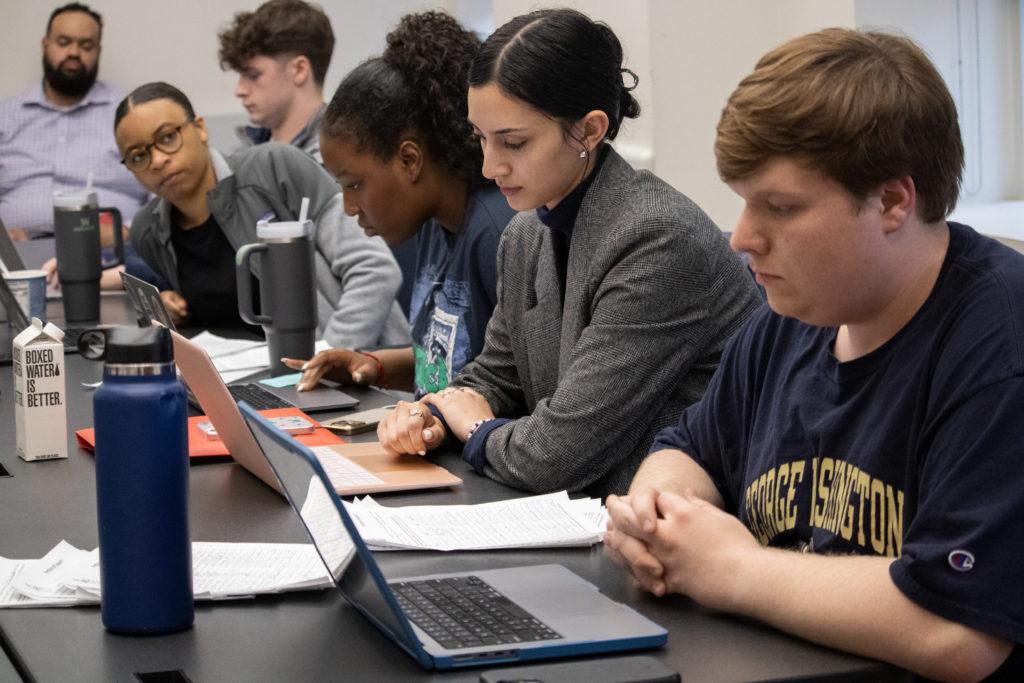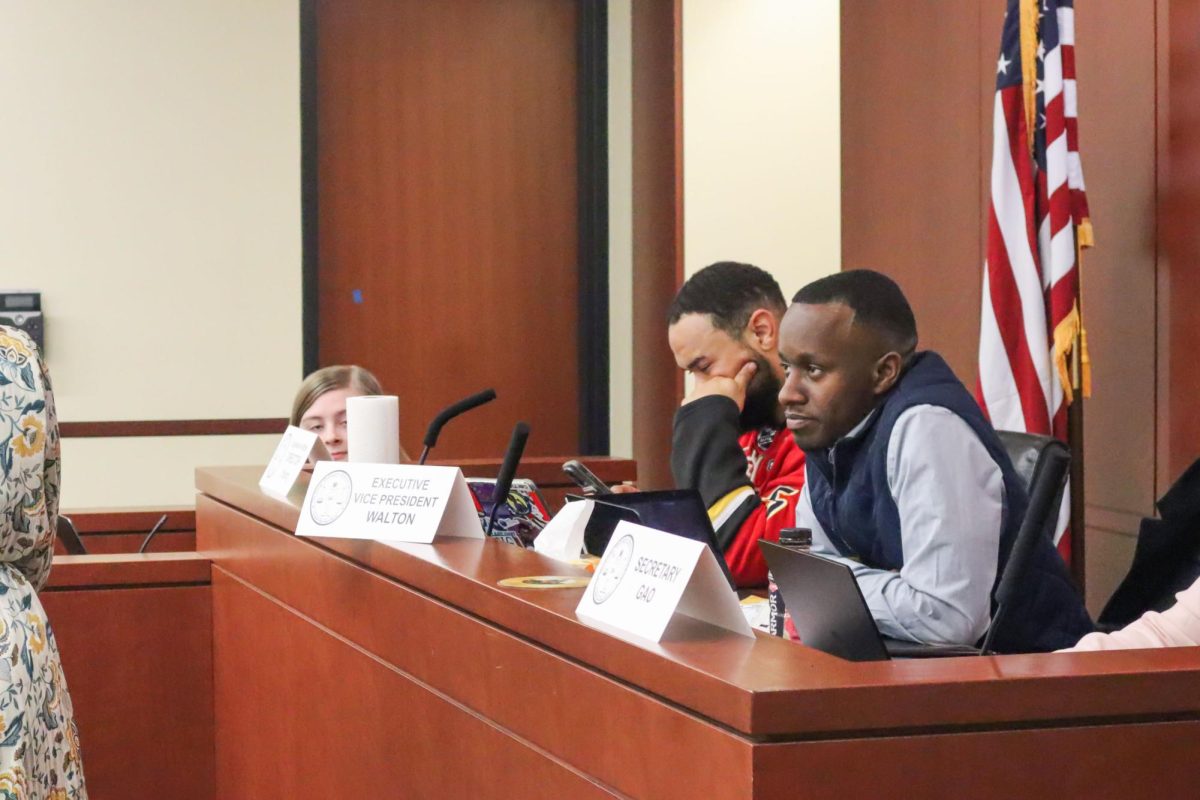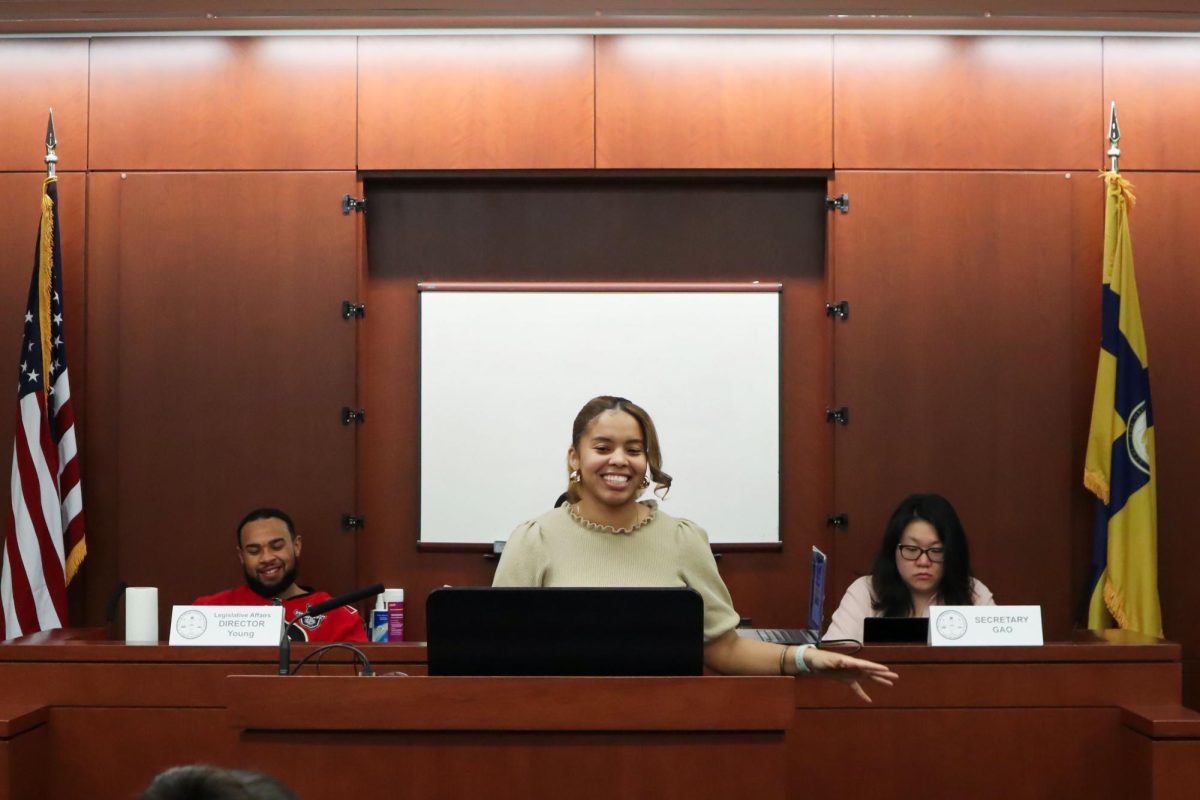Updated: April 3, 2023, at 9:02 p.m.
Before campaign season could even begin, disputes and disorganization have marred this year’s Student Association elections.
Within the last week, the Joint Elections Commission – the group of five students who manage the SA elections, independent of the governing body – have disqualified two presidential candidates, including incumbent SA President Christian Zidouemba, and one senate candidate from the ballot because of invalid petition signatures needed to qualify for the respective races. After the trio of students appealed the decisions with their own complaints in the Student Court, the SA Senate approved a one-week delay to the election to allow the court the time to hear the cases before voting can commence.
The candidate fallout came about a month after the SA finished filling the JEC’s five positions, roughly two months later than their bylaws require. The campaign period is now set to begin Monday, leading up to the new election dates of April 13 and 14. The JEC scheduled its annual debate for candidates to take place Tuesday, and the Student Court will hold two hearings Saturday, including a session for Zidouemba’s case.
We’ve laid out a timeline of the SA’s rocky path to the elections, from the JEC’s delayed creation and disqualifications to candidate complaints and the election’s postponement. Here’s what has happened so far:
SA appoints JEC two months late
The SA Senate confirmed JEC Commissioner Fatima Konte and two other JEC members, freshman Michael Ubis and senior Catalina Desouza, in late January. The SA bylaws state the SA president should appoint the JEC commissioner before the end of the spring semester of the academic year before the SA elections – in this case, by May 2022. If the president fails to appoint a commissioner, the senate should confirm one by Oct. 1, according to the bylaws.
The senate confirmed junior Oliver Plavin and graduate student Marie Falcone, the final two members of the JEC, in early February – less than two months before the candidate registration period began in late March.
The JEC scheduled the election for April 5 and April 6 during the commission’s Feb. 17 meeting, later than the election’s March deadline outlined in the SA’s bylaws. The senate amended the bylaws 10 days later to allow the delayed election, extending the acceptable timeframe for the election to April 14.
Candidates register as Zidouemba waffles on reelection bid
Zidouemba told the senate at a meeting in early March that he would not run for reelection. In an apparent change of heart the next day, he posted an Instagram poll asking followers if he should launch a bid for reelection.
Junior Edy Koenigs, Zidouemba’s former senior policy adviser, became the first to run for the SA presidency March 8. Her boyfriend and former SA assistant transportation secretary Nathan Orner announced his own campaign within a day of hers.
Roughly two weeks later, SA Sen. Rami Hanash Jr., GWSB-U, sprung his presidential campaign into action, and GW Entrepreneurship Club leader Mohamed Redzuan Bin Mohamed Raffe followed two days later.
SA Senate Chairperson Pro Tempore Demetrius Apostolis became the first to announce a run for the vice presidency in late March, and SA Treasurer Arya Thakur stepped in as his sole challenger the next day.
That Friday, the JEC released a preliminary ballot that listed seven presidential candidates, including Zidouemba. The JEC had not yet verified the petition signatures for preliminary candidates.
Completing his reversal from his earlier statements, Zidouemba said in an interview the next day that he would run for reelection after students advised him to do so. Zidouemba had become the first SA president to run for reelection since 1987, according to Hatchet archives. Residence Hall Association President Arielle Geismar announced her campaign for SA president on the same day.
Zidouemba’s Chief of Staff Keanu Rowe officially announced his presidential run that Saturday, planning to seek external funding to increase student organization funding and improve campus safety.
The JEC disqualifies three candidates from ballot
JEC Chief Investigator Tyla Evans recommended March 22 that the JEC disqualify Zidouemba from the election, alleging he violated SA election bylaws by “wrongfully collecting signatures” for himself while purporting to do so for the campaigns of Rowe, Raffe and sophomore Aidan Spencer, a senate candidate running for a Columbian College of Arts and Sciences seat.
The JEC disqualified Zidouemba from the SA elections at a March 27 hearing after Raffe and 2022 SA write-in presidential candidate Andrew An testified that Zidouemba did not label his petition sheet with his name, and two of his sheets had crossed-out letters in the line for the candidate’s name. An testified that when he asked Zidouemba who he was collecting signatures for, Zidouemba said he was collecting signatures on Rowe’s behalf.
Zidouemba has denied the allegations of impersonating other candidates’ campaigns multiple times. Former SA Finance Committee Chair Ian Ching said in written testimony that he took one of Zidouemba’s petition sheets and added Rowe’s name as a “harmless prank.” Zidouemba said “one or two” of his petition sheets were not labeled with his name while collecting signatures.
The Hatchet obtained photos of two of Zidouemba’s petition sheets – on one, Rowe’s name was written on the top and crossed out with Zidouemba’s name written above, and the other form showed what appears to be the letter “K” crossed out at the top of the sheet with Zidouemba’s name written next to it.
The next morning, the JEC disqualified Raffe from the presidential ballot because 14 students who signed his petition omitted their GWIDs, which the JEC required to verify signatures. After the JEC struck down the 14 signatures, Raffe did not meet the 385-signature requirement to appear on the ballot.
Aidan Spencer, a sophomore running for a CCAS-U senate seat, said the JEC did not verify his candidacy, discounting signatures he gathered from students who did not add their college to his petition.
JEC delays elections as Student Court cases ensue
In a meeting for verified SA candidates March 28, Konte announced the JEC would delay the elections and the campaign period to a “tentative date” after Zidouemba’s and Raffe appealed their disqualifications. The campaign period originally would have begun March 29.
The next day, the JEC proposed the election be rescheduled to April 13 and April 14 in an advisory opinion.
The senate’s Governance and Nominations Committee unanimously approved the new election date Thursday, and the full senate confirmed the dates Friday.
Konte said in the JEC’s public meeting Friday that postering day, which begins the campaign period, would be rescheduled to Monday.
Student Court hears arguments from appealing candidates
Zidouemba, Raffe and Spencer each appealed their removal from the ballot to the Student Court between Tuesday and Wednesday.
Zidouemba’s complaint argues Evans did not prove her charge – that he impersonated Rowe, Raffe and Spencer – and An’s testimony was not supported by physical evidence. The complaint also states Evans did not submit An as a witness within six hours prior to the hearing, as the bylaws require.
Raffe withdrew his case in the Student Court Friday after settling with the JEC. Raffe and the JEC did not publicize the terms of the settlement.
The Student Court scheduled hearings for Zidouemba’s and Spencer’s cases for Saturday.
The fate of their candidacies are yet to be determined as the SA lumbers toward an uncertain election.
This post has been updated to correct the following:
The Hatchet reported that Zidouemba argued that Evans failed to prove her three charges against him. She only charged him with one violation for allegedly impersonating three different campaigns. We regret this error.








